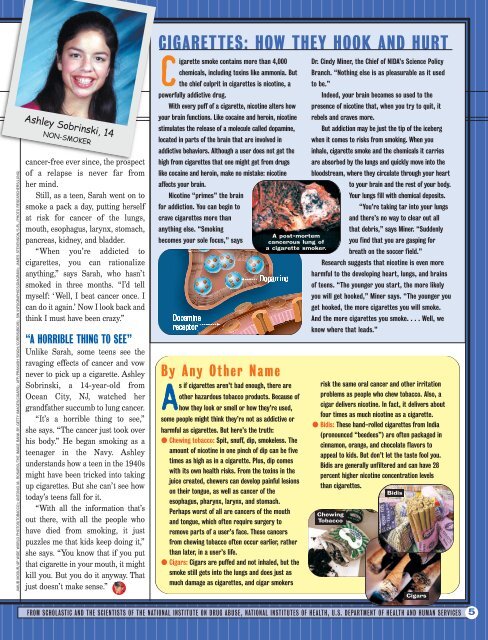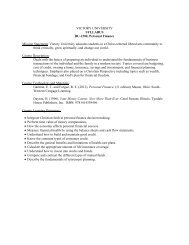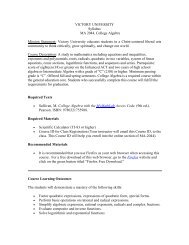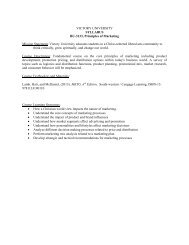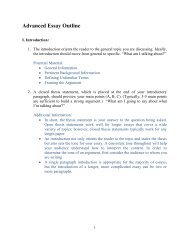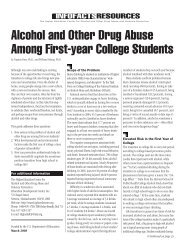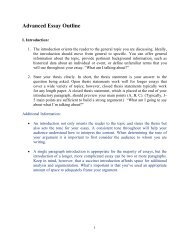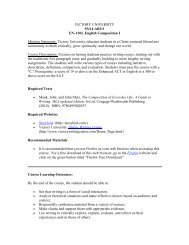Heads Up: Real News About Drugs and Your Body - Scholastic
Heads Up: Real News About Drugs and Your Body - Scholastic
Heads Up: Real News About Drugs and Your Body - Scholastic
Create successful ePaper yourself
Turn your PDF publications into a flip-book with our unique Google optimized e-Paper software.
JAKUB MOSUR/AP WIDE WORLD PHOTOS(TOBACCO); ANTONIO M. ROSARIO/THE IMAGE BANK BY GETTY IMAGES(CIGARS); AFP/PRAKASH SINGH/CORBIS(BIDIS); 5W INFOGRAPHICS(DIAGRAM); JAMES STEVENSON/S.P.L./PHOTO RESEARCHERS(LUNG)Ashley Sobrinski, 14NON-SMOKERcancer-free ever since, the prospectof a relapse is never far fromher mind.Still, as a teen, Sarah went on tosmoke a pack a day, putting herselfat risk for cancer of the lungs,mouth, esophagus, larynx, stomach,pancreas, kidney, <strong>and</strong> bladder.“When you’re addicted tocigarettes, you can rationalizeanything,” says Sarah, who hasn’tsmoked in three months. “I’d tellmyself: ‘Well, I beat cancer once. Ican do it again.’Now I look back <strong>and</strong>think I must have been crazy.”“A HORRIBLE THING TO SEE”Unlike Sarah, some teens see theravaging effects of cancer <strong>and</strong> vownever to pick up a cigarette. AshleySobrinski, a 14-year-old fromOcean City, NJ, watched hergr<strong>and</strong>father succumb to lung cancer.“It’s a horrible thing to see,”she says. “The cancer just took overhis body.” He began smoking as ateenager in the Navy. Ashleyunderst<strong>and</strong>s how a teen in the 1940smight have been tricked into takingup cigarettes. But she can’t see howtoday’s teens fall for it.“With all the information that’sout there, with all the people whohave died from smoking, it justpuzzles me that kids keep doing it,”she says. “You know that if you putthat cigarette in your mouth, it mightkill you. But you do it anyway. Thatjust doesn’t make sense.”CIGARETTES: HOW THEY HOOK AND HURTCigarette smoke contains more than 4,000chemicals, including toxins like ammonia. Butthe chief culprit in cigarettes is nicotine, apowerfully addictive drug.With every puff of a cigarette, nicotine alters howyour brain functions. Like cocaine <strong>and</strong> heroin, nicotinestimulates the release of a molecule called dopamine,located in parts of the brain that are involved inaddictive behaviors. Although a user does not get thehigh from cigarettes that one might get from drugslike cocaine <strong>and</strong> heroin, make no mistake: nicotineaffects your brain.Nicotine “primes” the brainfor addiction. You can begin tocrave cigarettes more thananything else. “Smokingbecomes your sole focus,” saysBy Any Other NameA post-mortemcancerous lung ofa cigarette smoker.As if cigarettes aren’t bad enough, there areother hazardous tobacco products. Because ofhow they look or smell or how they’re used,some people might think they’re not as addictive orharmful as cigarettes. But here’s the truth:• Chewing tobacco: Spit, snuff, dip, smokeless. Theamount of nicotine in one pinch of dip can be fivetimes as high as in a cigarette. Plus, dip comeswith its own health risks. From the toxins in thejuice created, chewers can develop painful lesionson their tongue, as well as cancer of theesophagus, pharynx, larynx, <strong>and</strong> stomach.Perhaps worst of all are cancers of the mouth<strong>and</strong> tongue, which often require surgery toremove parts of a user’s face. These cancersfrom chewing tobacco often occur earlier, ratherthan later, in a user’s life.• Cigars: Cigars are puffed <strong>and</strong> not inhaled, but thesmoke still gets into the lungs <strong>and</strong> does just asmuch damage as cigarettes, <strong>and</strong> cigar smokersDr. Cindy Miner, the Chief of NIDA’s Science PolicyBranch. “Nothing else is as pleasurable as it usedto be.”Indeed, your brain becomes so used to thepresence of nicotine that, when you try to quit, itrebels <strong>and</strong> craves more.But addiction may be just the tip of the icebergwhen it comes to risks from smoking. When youinhale, cigarette smoke <strong>and</strong> the chemicals it carriesare absorbed by the lungs <strong>and</strong> quickly move into thebloodstream, where they circulate through your heartto your brain <strong>and</strong> the rest of your body.<strong>Your</strong> lungs fill with chemical deposits.“You’re taking tar into your lungs<strong>and</strong> there’s no way to clear out allthat debris,” says Miner. “Suddenlyyou find that you are gasping forbreath on the soccer field.”Research suggests that nicotine is even moreharmful to the developing heart, lungs, <strong>and</strong> brainsof teens. “The younger you start, the more likelyyou will get hooked,” Miner says. “The younger youget hooked, the more cigarettes you will smoke.And the more cigarettes you smoke. . . . Well, weknow where that leads.”risk the same oral cancer <strong>and</strong> other irritationproblems as people who chew tobacco. Also, acigar delivers nicotine. In fact, it delivers aboutfour times as much nicotine as a cigarette.• Bidis: These h<strong>and</strong>-rolled cigarettes from India(pronounced “beedees”) are often packaged incinnamon, orange, <strong>and</strong> chocolate flavors toappeal to kids. But don’t let the taste fool you.Bidis are generally unfiltered <strong>and</strong> can have 28percent higher nicotine concentration levelsthan cigarettes.ChewingTobaccoBidisCigarsFROM SCHOLASTIC AND THE SCIENTISTS OF THE NATIONAL INSTITUTE ON DRUG ABUSE, NATIONAL INSTITUTES OF HEALTH, U.S. DEPARTMENT OF HEALTH AND HUMAN SERVICES 5


